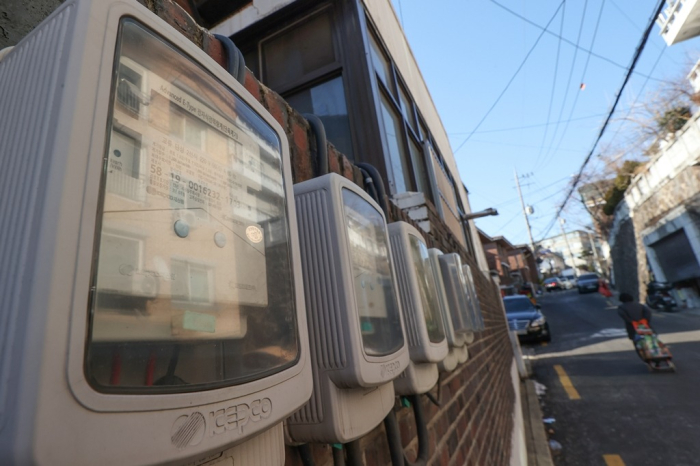Economy
Korea expects inflation to ease from Oct after 5-month high
Annual core inflation stays at the lowest since April 2022; BOK expects pressure from demand to weaken
By Oct 05, 2023 (Gmt+09:00)
2
Min read
Most Read
LG Chem to sell water filter business to Glenwood PE for $692 million


Kyobo Life poised to buy Japan’s SBI Group-owned savings bank


KT&G eyes overseas M&A after rejecting activist fund's offer


StockX in merger talks with Naver’s online reseller Kream


Mirae Asset to be named Korea Post’s core real estate fund operator



South Korea predicted headline inflation to ease from October after hitting a five-month high last month, adding to expectations that the central bank may keep its policy interest rate unchanged amid a slow recovery in Asia’s fourth-largest economy despite the recent surge in US bond yields.
South Korea’s consumer prices rose 3.7% last month from a year earlier, their fastest pace since April, according to Statistics Korea on Thursday. The consumer inflation accelerated to 3.4% in August from a 25-month low of 2.3% in July as the extreme summer weather ramped up agricultural product prices.
“Consumer prices are expected to gradually stabilize from October on weakening seasonal factors after rising more than 3% in August and September due to soaring global oil prices,” said Finance Minister Choo Kyung-ho in a meeting with other ministers to discuss the data.
Choo vowed to actively take measures to stem a rebound in inflation as oil prices remained high.
Higher utility bills lifted September's headline inlation as heating and gas prices soared 33.4% and 21.5%, respectively. Electricity costs jumped 20.3%. Drops in petroleum products eased to 4.9% from 11% in August and 25.9% in July.
CORE INFLATION STEADY AT LOWEST SINCE APRIL 2022
Annual core inflation, which excludes volatile food and energy prices, held steady at 3.3% for a third straight month, its lowest since April 2022, however.
That caused the central bank to forecast consumer prices to stabilize.
“Consumer inflation is predicted to ease again from October to head to around 3% by year-end as the core inflation is likely to slow due to weakening demand pressure and base effects,” said BOK Deputy Governor Kim Woong.
The BOK is scheduled to hold a monetary policy meeting on Oct. 19. The central bank held its policy interest rate at 3.50% in August for a fifth straight meeting.
BOK Governor Rhee Chang-yong repeatedly said the monetary authority needs to leave the door open to raising the base interest rate by 25 basis points (bps), although financial market investors and analysts ruled out the possibility of a further tightening considering the slowdown in the economy.
But some economists called for a hike as the Federal Reserve is likely to increase the fed funds rate further from the current range of 5.25%-5.50%, ramping up the 10-year US Treasury yield to a 16-year high.
South Korea’s economy has started to see signs of recovery. Exports slowed their decline in September to their mildest drop amid a yearlong downturn as overseas sales of semiconductors touched their highest level in a year with a narrower fall. Factory output in August jumped 5.5% from the previous month on a seasonally adjusted basis, marking the fastest monthly gain since June 2020.
Write to Jin-gyu Kang at josep@hankyung.com
Jongwoo Cheon edited this article.
More to Read
-
 MarketsKorea markets melt as Fed officials foresee longer-than-expected high rates
MarketsKorea markets melt as Fed officials foresee longer-than-expected high ratesOct 04, 2023 (Gmt+09:00)
5 Min read -
 EconomyKorean Sept export drop eases as chip sales hit 1-year high
EconomyKorean Sept export drop eases as chip sales hit 1-year highOct 02, 2023 (Gmt+09:00)
2 Min read -

-
 Central bankBOK chief’s top mission: Soft landing for household debt
Central bankBOK chief’s top mission: Soft landing for household debtAug 24, 2023 (Gmt+09:00)
2 Min read -
 EconomyKorea’s inflation eases to 25-mo low, but poised to rebound in H2
EconomyKorea’s inflation eases to 25-mo low, but poised to rebound in H2Aug 02, 2023 (Gmt+09:00)
3 Min read
Comment 0
LOG IN


